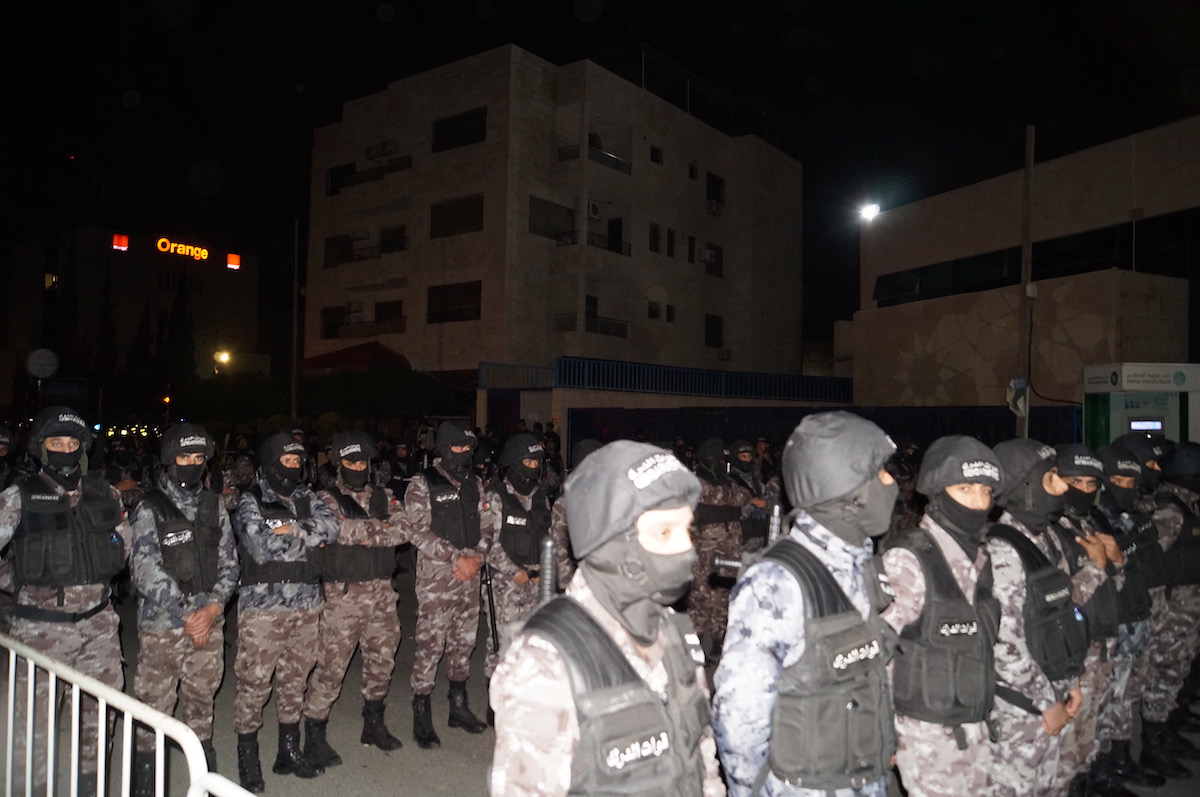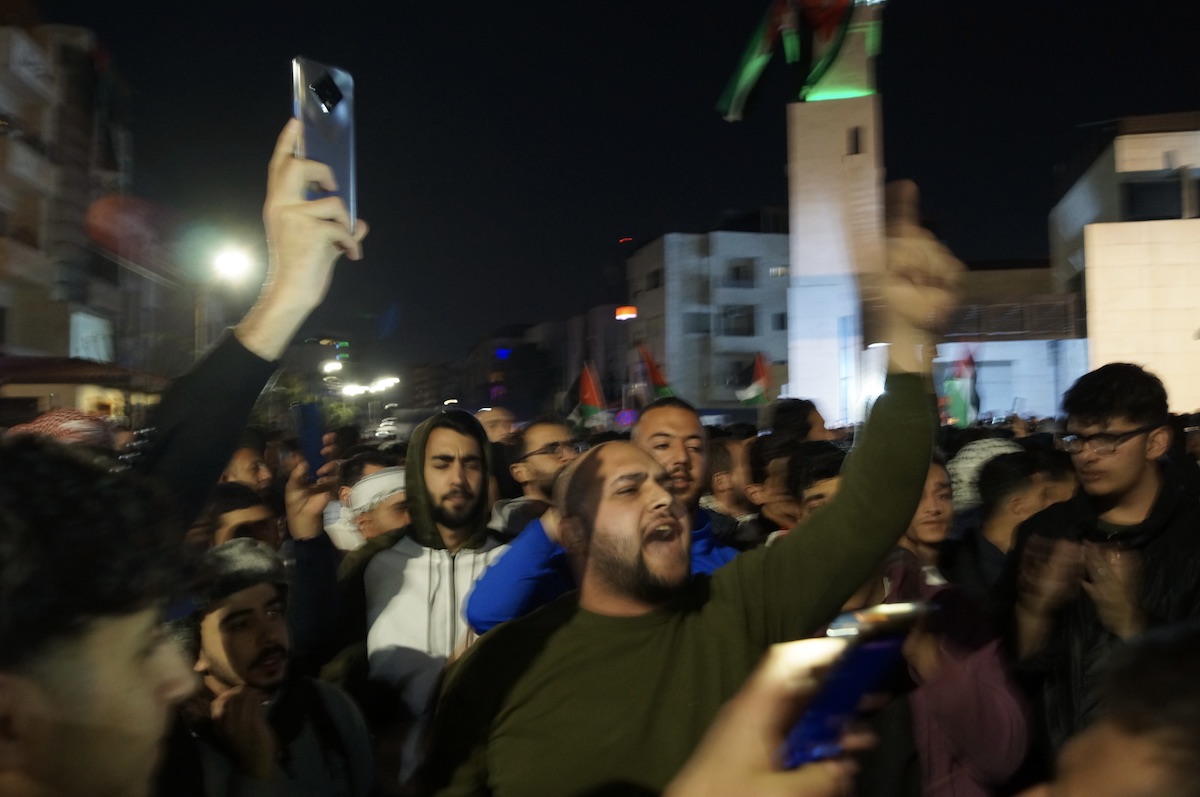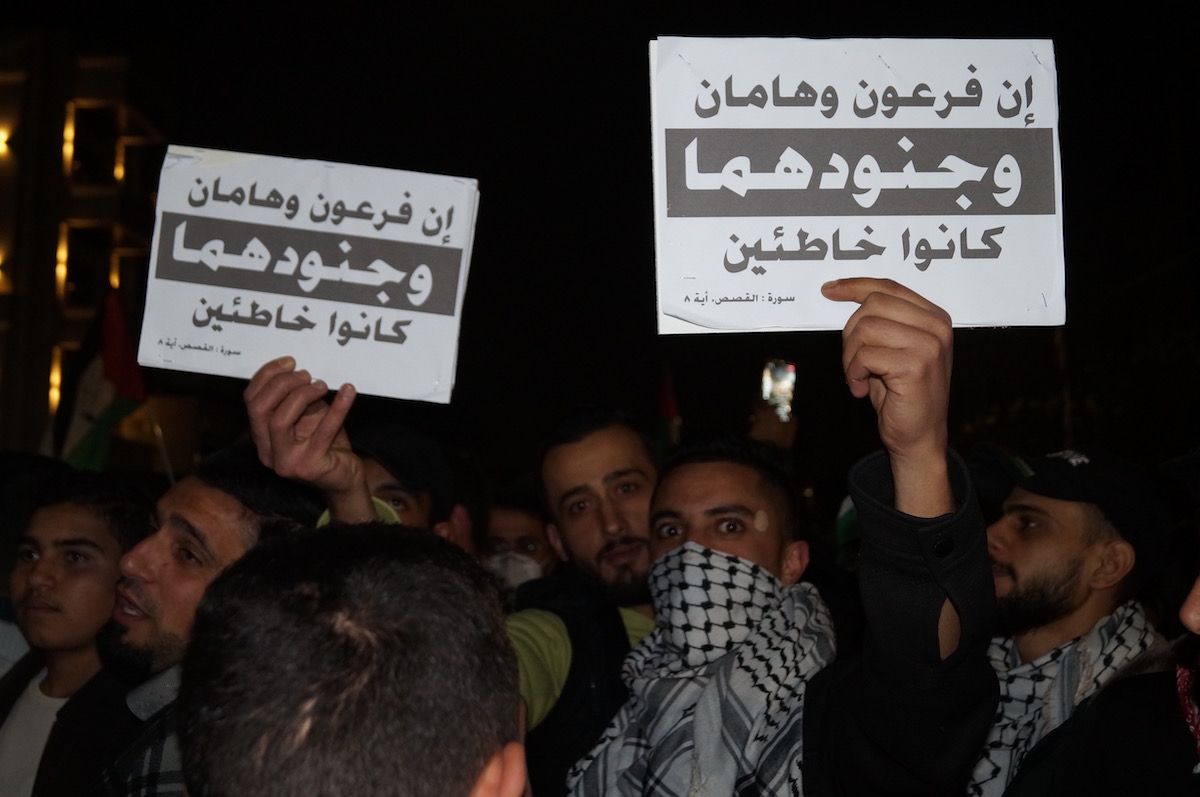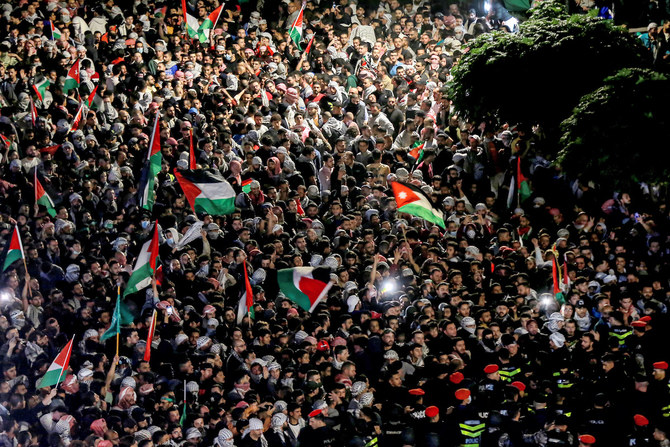AMMAN: Thousands of Jordanians marched to the Israeli embassy in Amman on Wednesday for the fourth consecutive day in an outpouring of anger at Israel’s brutal war on Gaza.
“The people demand the end of Wadi Araba,” some chanted, referring to Jordan’s 1994 peace treaty with Israel.

Hundreds of security personal stationed nearby by the heavily fortified Israeli embassy in Amman. (AN Photo/Tamara Turki)
Protestors, who began gathering at the Kaloti mosque around 10 p.m., were met by hundreds of security personal and military tanks in anticipation of the planned march to the heavily fortified Israeli embassy nearby.
Ambulances and medical teams were stationed as a precaution in the wake of days marked by violent confrontations between protestors and riot police.
Jordan has had some of the largest peaceful protests in the region since October, with regular marches in downtown Amman drawing hundreds of thousands of people on consecutive Fridays.
However, several demonstrators on Wednesday told Arab News the recent surge of daily gatherings near the Israel embassy were triggered by claims by Jamila Al-Hissi, a Palestinian woman, who told Al Jazeera Arabic of Israeli soldiers torturing, raping and executing women inside Al-Shifa hospital.
There have been reports that Al-Hissa’s claimed were denied on March 25 by a former Al Jazeera executive, who referenced a purported Hamas investigation.

"We are the children of refugee camps," Jordanian protesters of Palestinian origin chanted. (AN Photo/Tamara Turki)
Jordanians have felt the impact of the war in Gaza deeply, where Israel’s relentless bombing has killed over 32,000 Palestinians.
Many of Jordan’s 12 million citizens are descendants of Palestinians who fled or were expelled during the 1948 Arab-Israeli conflict. “We are the children of refugee camps," demonstrators on Wednesday chanted.
“I’m devastated that we haven’t been able to help Gaza. The least that we can do is to be here so that our brothers and sisters in Palestine know that we’re standing with them,” 29-year-old Haneen Ashour told Arab News.
Popular chants like “No Zionist embassy on Jordanian soil” reflect the widespread public opposition to diplomatic normalization with Israel, seen as a betrayal of the Palestinians suffering under occupation.

Jordanian demonstraters carry posters during a gathering nearby the Israeli embassy in Amman in protest of war in Gaza. (AN Photo/Tamara Turki)
Despite the large turnout and passionate demonstrations, some protesters have expressed doubt about the impact of their actions.
“This is our duty and it’s the least that we can do, but to be honest with you I don’t (know if) these protests are making any difference. If they were, we wouldn’t be 171 days into the war in Gaza,” 24-year-old Ammar Najar said.
Several protesters were beaten in previous days, and dozens were arrested as they attempted to break a heavy police cordon around the embassy, witnesses said.
Jordan’s authorities allow protests but say they cannot tolerate any attempt to storm the embassy, instigate civic unrest or try to reach borders with the occupied West Bank or Israel.


























